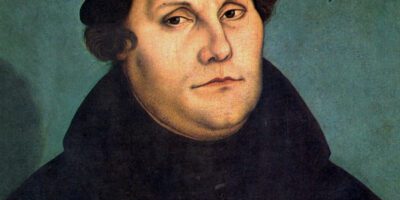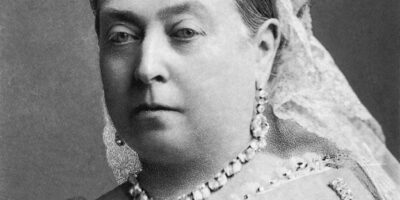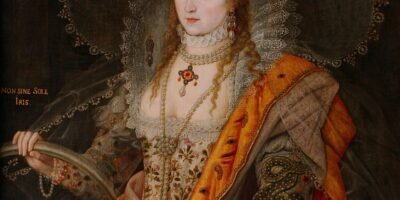10 Most Famous Historical Events that happened in Bangladesh
Bangladesh has had a series of legal, political and territorial events that have impacted the history of the country and the trajectory it is taking right now. For one to understand the direction that a country is heading, then they must study past events and the impact that they had on the country so that they can know what happens if a certain event is seen in the country.
Therefore, this article will explore the ten most famous events that happened in Bangladesh and how they affected the country whether positively or negatively. The information from the article will also be critical in educating the reader about events in different parts of the world and thus equip them with great insight into the social, political and economic situation of the world.
1. In 1971 Bangladesh gained independence

The Bangladeshi flag by Fredrik Rubensson-Wikimedia
The Bangladesh war of independence was an armed conflict and revolution that was sparked by the rise of Bengali nationalists who were determined to gain their freedom from Pakistan and become a sovereign country.
During the 1970 election in Pakistan, the country was under the military government of President Yahya Khan. The elections saw the largest political party that was led by Bangabandhu Sheikh Mujibur Rahman win a clear majority of East Pakistani national seats and the provincial assembly. However, Zulfikar Ali Bhutto conspired with Yahya Khan and refused to hand over power.
Seeing that the west Pakistani had no intentions of letting them into power, Mujibur and his supporters began a spirited struggle for independence and in 1971 they attained independence.
2. The first president was assassinated
In August 1975, the country’s independence leader and Bangladesh’s first president were assassinated in a military coup. The president and most of his family were killed by a group of Bangladesh army who invaded his home as part of the coup.
This assassination resulted from a left-wing insurgency where a group known as Jatiya Samajtantrik Dal which was led by Colonel Abu Taher started a political massacre of people who supported the government. This resulted in a breakdown of the law in the country and thus led to the assassination of the president.
3. In 1981, another president was killed

A picture of Ziaur Rahman by nefco-Wikimedia
Ziaur Rahman was the country’s 7th president and he was assassinated in another military coup. He was assassinated in the southeastern port city of Chittagong where he had gone to arbitrate a clash between the local leaders of his political party.
The group of officers surrounded the Chittagong Circuit house which was a government residence and shot the president and several others. Some of the officers who had come to kill the president were killed while trying to escape and others were arrested and sentenced to life in prison.
4. President Hussain Mohammed Ershad ousted
In December 1990, President Hussain Mohammed Ershad was ousted in a popular uprising after nine years of autocratic rule. The president seized power during a bloodless coup against President Abdus Sattar in 1982. He then declared himself president and won the 1986 presidential elections.
Although he claimed to have won the elections legitimately, the citizens considered his era one of military dictatorship. He served in office until he was ousted in a popular pro-democracy uprising
5. The first free elections were held

A picture of Khaleda Zia by Antonio Milena-Wikimedia
In February 1991, Bangladesh held its first free elections. The elections were termed to be free and fair by many international observers, unlike the previous elections where leaders took power with force. The elections were critical in solidifying the country’s democracy and the aftermath of the anti-government protests that were seen in the late 1980s.
The Bangladesh Nationalist Party had the most seats in government with 140 out of the total 300 seats. Khaleda Zia who was the widow of former president Ziaur Rahman was elected as prime minister.
6. In 1996, Sheikh Hasina was elected prime minister

Sheikh Hasina by the Prime Minister’s Office of Bangladesh-Wikimedia
In the next general election after the 1991 election that was famed for being free and fair, Sheikh Hasina who was the daughter of the independence leader Sheikh Mujibur Rahman was elected as prime minister.
Sheikh Hasina served as prime minister from 1996 to 2001. During her tenure, the country saw democratic backsliding in that there was enforced disappearance and extrajudicial killings. Several journalists and politicians were punished for challenging her views.
7. Khaled Zia was re-elected as prime minister
During the 2001 general election, Khaled Zia was re-elected for the post of prime minister. She was declared the legitimate winner in the Bangladesh general election, a result that surprised many people.
Zia won a total of 183 votes against Hasina’s 63 votes who was the current prime minister. The month-long campaign featured fierce rivalry between the leading candidates and also a lot of violence from the supporters of rival parties that left thousands injured and hundreds of people dead.
8. A state of emergency was declared in 2007
Following weeks of violent protests and political violence, Bangladesh president Iajuddin Ahmed declared a state of emergency in January 2007. The state of emergency featured the suspension of certain fundamental rights and a night-time curfew.
Furthermore, the state of emergency resulted in the postponement of the general elections that had been scheduled to be in two weeks. This also resulted in more violence as the elections were to be overseen by the government and the president had resigned.
9. Elections were held in 2008

The Bangladeshi elections in 2008 by stoneBuddha-Wikimedia
After a delay of close to two years following the state of emergency that had been declared, the general elections were held on 29th December 2008. The two main parties in the election were the Bangladesh Nationalist Party which was led by Khaled Zia and the Bangladesh Awami League Party which was led by Sheikh Hasina.
10. The murderers of the Bangladeshi president were hanged
In January 2010, the people responsible for the death of Bangladeshi president Sheikh Mujibur Rahman were hanged. The officers include Lieutenant Colonel Sultan Shahriar Rashid Khan, Lieutenant Colonel Syed Faruq Rahman, Major AKM Mohiuddin Ahmed, Major Bazlul Huda and Lieutenant Colonel Mohiuddin Ahmed.
Planning a trip to Paris ? Get ready !
These are Amazon’s best-selling travel products that you may need for coming to Paris.
Bookstore
- The best travel book : Rick Steves – Paris 2023 – Learn more here
- Fodor’s Paris 2024 – Learn more here
Travel Gear
- Venture Pal Lightweight Backpack – Learn more here
- Samsonite Winfield 2 28″ Luggage – Learn more here
- Swig Savvy’s Stainless Steel Insulated Water Bottle – Learn more here
Check Amazon’s best-seller list for the most popular travel accessories. We sometimes read this list just to find out what new travel products people are buying.









